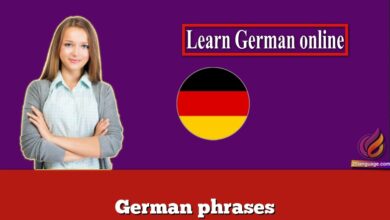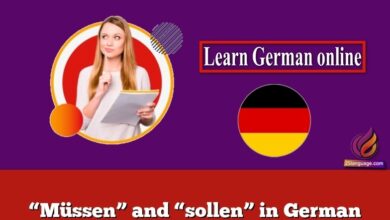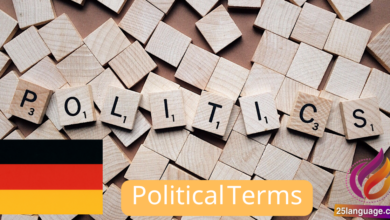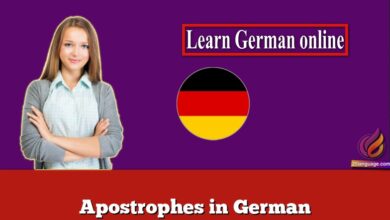The Difference between “mögen” and “möchten” in German
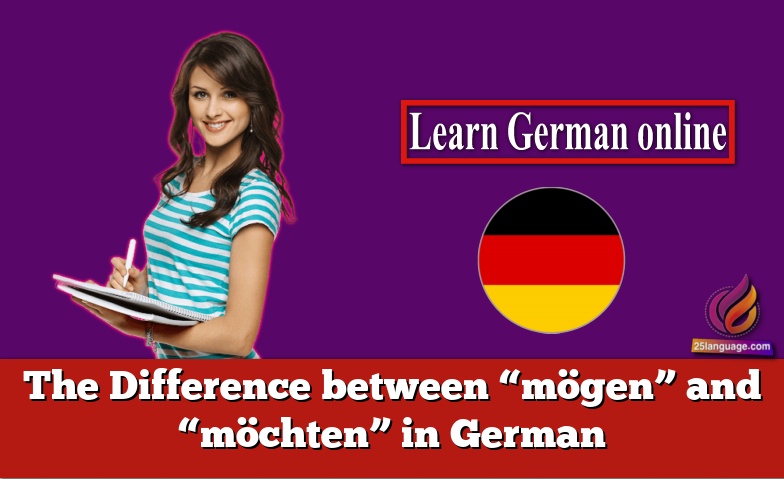
Many people wonder about the difference between the German verb forms mögen and möchten.
First of all, you need to know that there is no German infinitive *möchten.
I’m aware that there are some websites where you can find the expression “the verb möchten” but this information is wrong.
Möchten is a verb from derived from the modal verb mögen, namely the Konjunktiv II, but used with present meaning.
Difference in meaning between mögen and möchten
The modal verb in its infinitive form mögen generally means “to like” and this is the meaning you express if you conjugate it with a -g- in its root (mag).
However, the conjugation with -chte (möchte) means “to want/would like”.
Thus, there are two ways of conjugating the German modal verb mögen as you can see in the following table:
| Modal verb infinitive mögen | ||
| Conjugation root: | mag-/mög- | möcht- |
| Meaning → | to like something/somebody | want/would like something |
| ich | mag | möchte |
| du | magst | möchtest |
| er/sie/es | mag | möchte |
| wir | mögen | möchten |
| ihr | mögt | möchtet |
| sie/Sie | mögen | möchten |
How is it possible for one verb to have 2 conjugations with different meanings?
The explanation is similar in English: “liking something” doesn’t mean you “want” it.
But used with the modal verb “would” (corresponding to Konjunktiv II in German), i.e. saying “you would like something”, this is a polite way to express that you want something.
For the grammarians interested: In order to obtain the Konjunktiv II of the irregular verbs, in German we use the Präteritum (simple past) root plus umlaut dots on the root vowel and an -e at the end (if there isn’t one already):
mögen (Infinitiv) → ich mochte (Präteritum) → ich möchte (Konjunktiv II)
to like (infinitive) → I liked (simple past) → I would like
The last important thing you must know is that the conjugation with -g- (mag/mög-) normally is combined with a noun while the conjugation with -cht- (möchte) can be combined both with a noun and a verb.
Examples
- Ich mag Fisch. (I like fish.)
- Ich möchte Fisch. (I would like fish.)
- Ich möchte bestellen. (I would like to order.)
- Ich möchte Fisch bestellen. (I would like to order fish.)
If you wonder how we express in German that you “like doing something”, we use the adverb gerne after the conjugated verb:
Ich esse gerne Fisch. (I like eating fish.)“Mögen” vs “möchten”
There are two very similar words in German: “mögen” and “möchten”. And as much as they sound similar, their meaning is very different. Therefore, mixing these two German verbs up might cause tricky situations: The fact that the meaning of “mögen” is “to like” and the meaning of “möchten” is “would like to”. Besides, an accusative object follows both words, which are irregular verbs.
Verb conjugation of “mögen”
1. “Mögen” in present tense (Präsens)
ich mag → I like
du magst → you like
er mag → he likes
sie mag → she likes
es mag → it likes
wir mögen → we like
ihr mögt → you like
sie mögen → they like
2. “Mögen” in simple past (Präteritum)
ich mochte → I liked
du mochtest → you liked
er mochte → he liked
sie mochte → she liked
es mochte → it liked
wir mochten → we liked
ihr mochtet → you liked
sie mochten → they liked
3. “Mögen” in present perfect (Perfekt)
ich habe gemocht → I have liked
du hast gemocht → you have liked
er hat gemocht → he has liked
sie hat gemocht → she has liked
es hat gemocht → it has liked
wir haben gemocht → we have liked
ihr habt gemocht → you have liked
sie haben gemocht → they have liked
Verb conjugation of “möchten”
Today, the past tenses of “möchten” are not used anymore. Instead, you need to use the past tenses of the modal verb “wollen” (to want).
1. “Möchten” in present tense (Präsens)
ich möchte → I would like
du möchtest → you would like
er möchte → he would like
sie möchte → she would like
es möchte → it would like
wir möchten → we would like
ihr möchtet → you would like
sie möchten → they would like
2. “Möchten” in simple past (Präteritum)
ich wollte → I wanted
3. “Möchten” in present perfect (Perfekt)
ich habe gewollt → I would have liked







